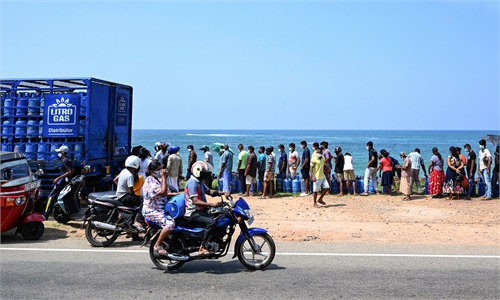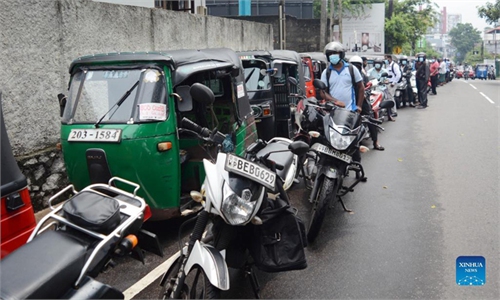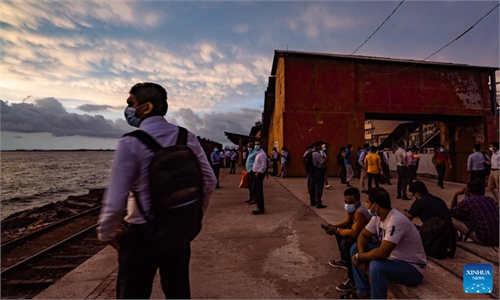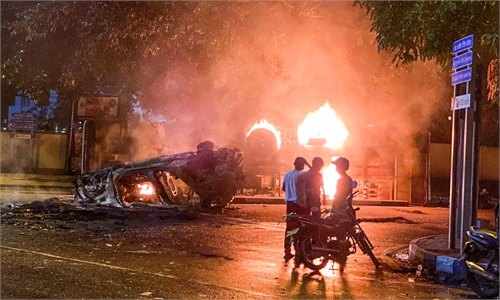Chinese firms in Sri Lanka generally safe, undisrupted amid political turmoil
Prospects for bilateral cooperation still promising: experts
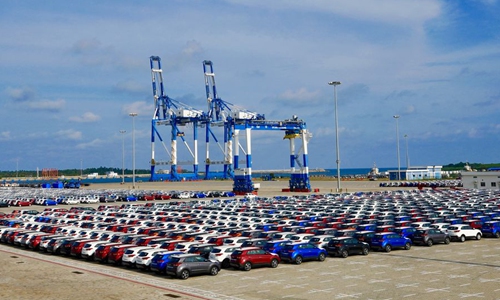
Photo taken on March 23, 2019 shows the storage yard of the Hambantota Port, in southern Sri Lanka. (Xinhua/Tang Lu)
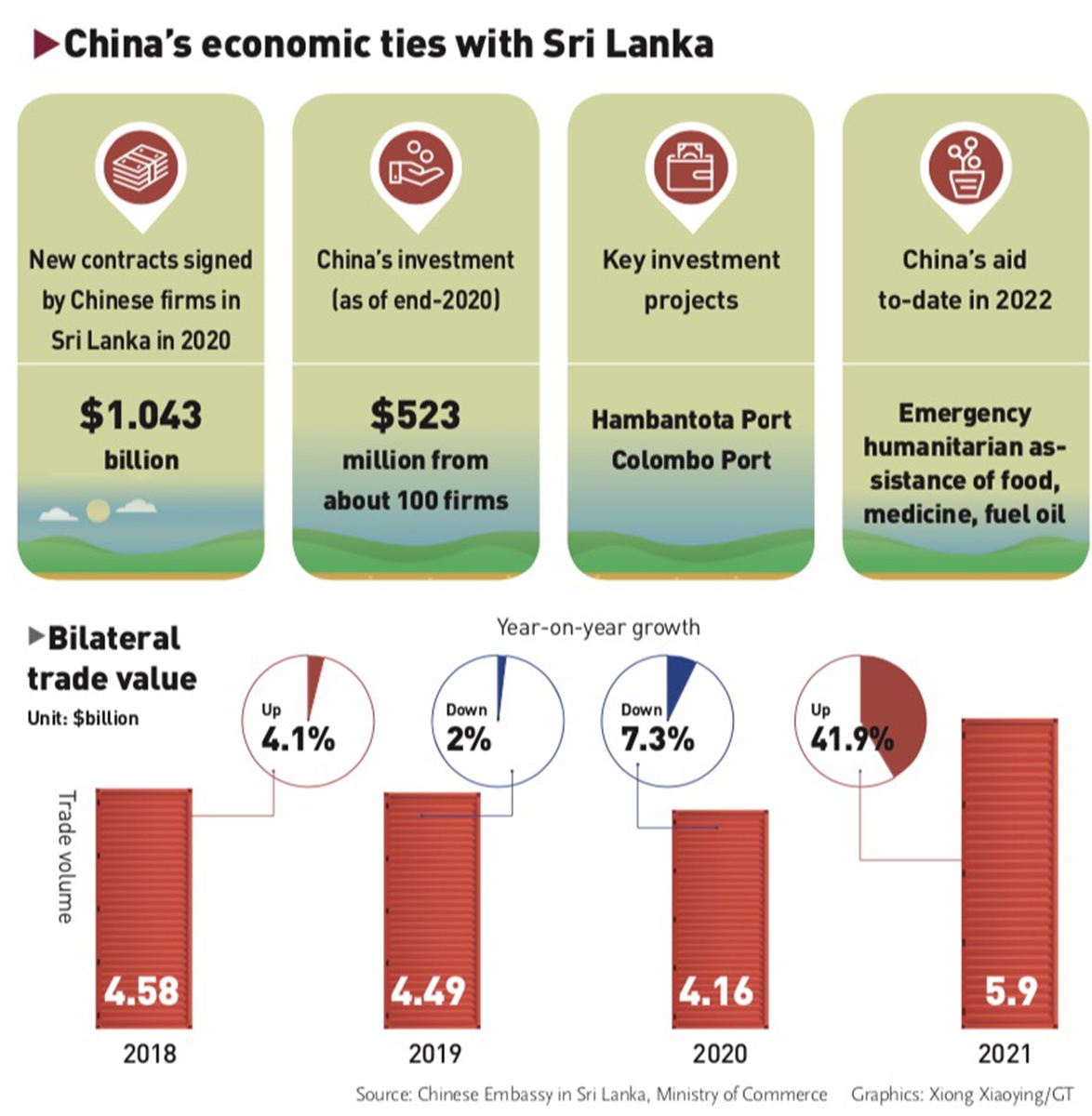
China's economic ties with Sri Lanka
Some Chinese enterprises operating in Sri Lanka said on Tuesday that their businesses and personnel in the South Asian country have been generally safe and undisrupted, though they have taken contingency plans to protect projects and employees, amid a deteriorating political turmoil in the country after Prime Minister Mahinda Rajapaksa announced his resignation on Monday.
Although Chinese enterprises will be more cautious when considering investment and expansion in projects in the country, the prospects for bilateral cooperation remain promising, Chinese experts noted on Tuesday.
Sichuan Kelun Pharmaceutical Co, with operations in Sri Lanka's capital since 2020, said on Tuesday that its personnel and business in the country have felt no particular impact from the latest political development.
All the employees in the country are safe and the company's business has not been disrupted, an employee told the Global Times, noting that the top priority is the employees' safety and contingency measures have been put in place in response to the situation.
The company has more than 10 Chinese employees in the country, and the rest are local employees, taking up the major portion.
It has also seen a very limited impact given the fact that the company's overseas business only takes up less than 5 percent of total revenue, and Sri Lanka's factories account for even less.
As an important country along the Belt and Road Initiative route, Sri Lanka has seen leapfrog development in Chinese investment, with many large-scale projects have been signed. Chinese private enterprises have invested heavily in areas such as hotels, tourism and fishing.
Data from China's Ministry of Commerce showed that in 2020, the value of new contracts signed by Chinese enterprises in Sri Lanka reached $1.043 billion.
A source with a large Chinese company with business operations in Sri Lanka told the Global Times on Tuesday that it has seen a limited impact on local projects. "The company has hired local security staff to ensure employees' safety there," the source said.
Yang Shiyuan, chief media officer at the Chinese Chamber of Commerce in Sri Lanka, told the Global Times on Tuesday that both Chinese employees and businesses of the chamber and the chamber's member companies have not been affected by the situation at the moment.
China is closely following the development of the situation in Sri Lanka, and believes that with the joint efforts of all walks of life, the situation will return to peace and stability as soon as possible, a spokesperson for the Chinese Foreign Ministry said on Tuesday.
In addition to the political turmoil, the country's economic crisis has reached a very severe stage. The Asian Infrastructure Investment Bank is considering granting Sri Lanka $100 million to help the South Asian nation in the grip of its worst economic crisis since independence, according to Bloomberg.
Under the current uncertainty in Sri Lanka, Chinese enterprises will be more cautious in the long run when considering investment and expansion in projects in Sri Lanka, Qian Feng, director of the research department at the National Strategy Institute at Tsinghua University, told the Global Times on Tuesday.
Qian stressed that prospects for cooperation between China and Sri Lanka are still good, and the two sides are complementary in many aspects, but the current priority for Sri Lanka is to overcome the difficulties.
Chinese market watchers said that the majority of investments and projects that involve Chinese enterprises in Sri Lanka are those in infrastructure, and they will continue when the local economy improves, for the country still needs improvement in infrastructure even amid the turmoil.
Liu Zongyi, secretary-general of the Research Center for China-South Asia Cooperation at the Shanghai Institutes for International Studies, told the Global Times on Tuesday that the political factor depends on the ruling party's attitude toward cooperating with Chinese enterprises. This will significantly affect the local business environment, although the overall prospect for Chinese enterprises remains positive.
Liu said that the influence of regional and global powers will also be an important factor. For instance, the US and India have formed a joint posture against China in South Asia, so further cooperation between China and other South Asian countries, including Sri Lanka, might be disrupted.
